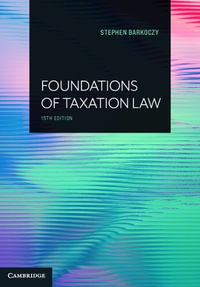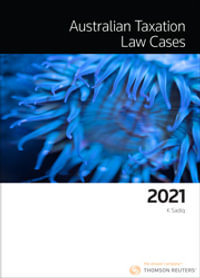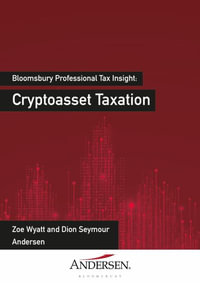
The 'Pillar Two' Global Minimum Tax
By: Werner Haslehner (Editor), Georg Kofler (Editor), Katerina Pantazatou (Editor), Alexander Rust (Editor)
Hardcover | 6 August 2024
Sorry, we are not able to source the book you are looking for right now.
We did a search for other books with a similar title, however there were no matches. You can try selecting from a similar category, click on the author's name, or use the search box above to find your book.
Key Features:
This authoritative book is an essential resource for legal practitioners practising in tax law, fiscal policy and commercial law. The applied nature of the text is also of great benefit to policymakers working in the taxation sphere. Scholars and students of international taxation will similarly find this to be a useful reference.
Industry Reviews
'This engaging book, featuring contributions from European tax experts, examines Pillar Two from what seems to be every conceivable perspective. The volume's panoptic approach yields surprising insights with respect to the issues likely to emerge from the OECD's radical reformulation of the rules of international taxation.' -- David Rosenbloom, Caplin & Drysdale, US
ISBN: 9781035308736
ISBN-10: 1035308738
Series: Elgar Tax Law and Practice Series
Published: 6th August 2024
Format: Hardcover
Language: English
Number of Pages: 352
Audience: Professional and Scholarly
Publisher: Edward Elgar Publishing Ltd
Country of Publication: GB
Dimensions (cm): 24.44 x 16.82
Shipping
| Standard Shipping | Express Shipping | |
|---|---|---|
| Metro postcodes: | $9.99 | $14.95 |
| Regional postcodes: | $9.99 | $14.95 |
| Rural postcodes: | $9.99 | $14.95 |
How to return your order
At Booktopia, we offer hassle-free returns in accordance with our returns policy. If you wish to return an item, please get in touch with Booktopia Customer Care.
Additional postage charges may be applicable.
Defective items
If there is a problem with any of the items received for your order then the Booktopia Customer Care team is ready to assist you.
For more info please visit our Help Centre.























